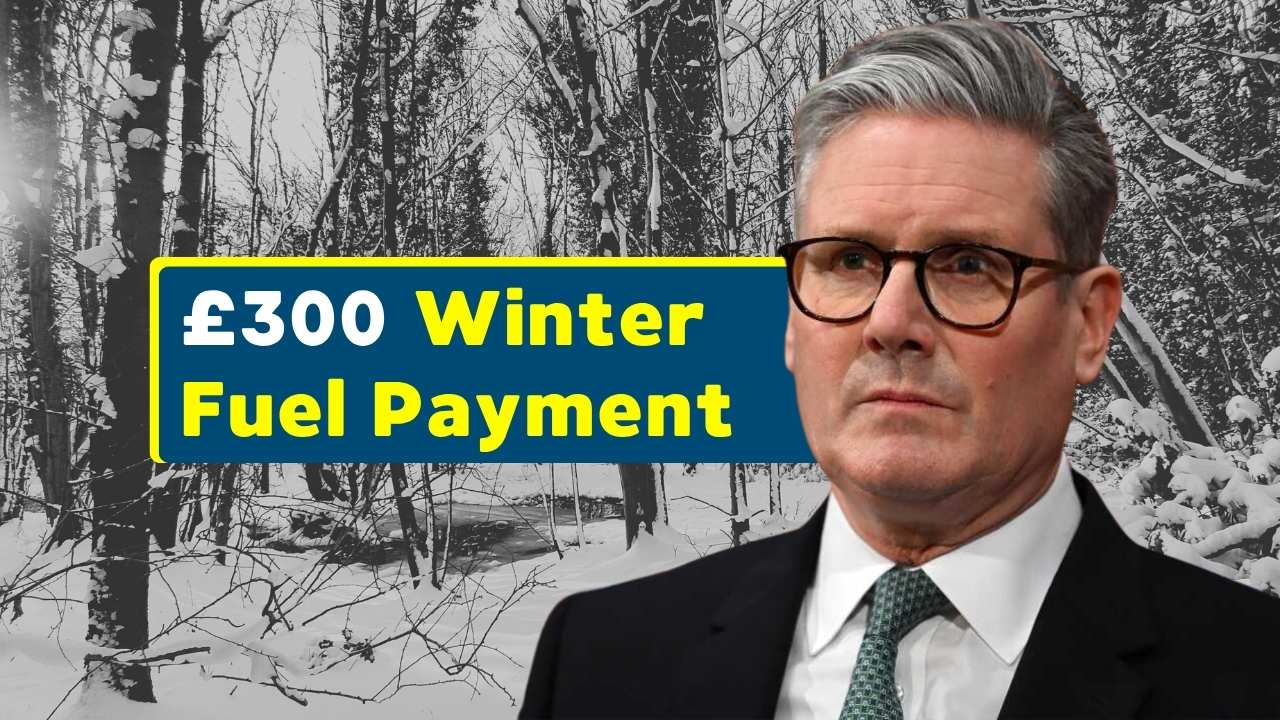The UK Government has confirmed that over nine million pensioners in England and Wales will receive the Winter Fuel Payment during the 2025–26 winter season. This initiative is designed to ease the financial pressure of rising energy costs during the colder months, especially for those on fixed or limited incomes. The payment, which will be either £200 or £300, depending on household age composition, is intended to help pensioners manage heating and energy expenses.
A significant change introduced this year is the use of an income threshold to determine eligibility. Pensioners earning £35,000 or less annually will automatically qualify for the Winter Fuel Payment. According to government data, this income level is above the poverty threshold for pensioners and broadly aligns with the national average earnings. This approach ensures that support is well-targeted toward those who are more likely to need assistance during winter.
The scheme, which was previously universal, has now been modified to reflect a more focused and efficient allocation of public funds. As a result, over three-quarters of pensioners in England and Wales are expected to benefit from the revised eligibility model. The projected cost of implementing the Winter Fuel Payment for 2025–26 stands at £1.25 billion, while a saving of approximately £450 million is anticipated through the introduction of means-testing mechanisms.
£300 Winter Fuel Payment 2025–26

The newly introduced £35,000 income ceiling is based on individual taxable income and does not consider combined household earnings. This simplifies the eligibility assessment and aligns with the government’s objective of delivering payments promptly and without administrative complexity. As long as a person meets the income and age criteria, the payment will be processed automatically without requiring the recipient to apply.
To be eligible, a person must have reached State Pension age by the end of the qualifying week, which for the 2025–26 cycle is from 15 to 21 September 2025. Eligibility will also depend on the applicant residing in England or Wales during the qualifying period. Notably, this shift from a universal to a means-tested system marks a considerable policy adjustment aimed at more effective welfare distribution.
The government estimates that around two million pensioners in England and Wales have incomes above the £35,000 threshold. These individuals will not be denied the payment upfront but will instead have it recovered automatically through the tax system. This will primarily be managed via PAYE for the majority and through Self-Assessment returns for others.
Amounts Payable and Age-Based Adjustments
The Winter Fuel Payment continues to vary depending on the age of the oldest person in the household. Households with at least one person aged 80 or above will receive a higher payment to reflect increased vulnerability to cold weather.
Below is a breakdown of the payment structure for Winter 2025–26:
| Household Composition | Winter Fuel Payment Amount |
|---|---|
| One or more individuals aged 80 or over | £300 |
| Individuals between State Pension age and 79 | £200 |
| Couple, both under 80, not on Pension Credit (shared) | £100 each |
The payment is made per household, not per individual, unless a shared payment structure applies. In households not receiving income-related benefits, the shared payment format will be implemented, with both individuals receiving an equal share of the support. Where benefits like Pension Credit are in place, the full amount is issued to the household as a lump sum.
Administration and Recovery Process for Higher-Income Pensioners
For pensioners whose income exceeds the £35,000 threshold, the Winter Fuel Payment will be initially disbursed but then recovered by Her Majesty’s Revenue and Customs (HMRC). This ensures equity, enabling quick delivery of payments while maintaining fiscal responsibility. Recovery will occur through either automatic deductions from taxable income or during the annual Self-Assessment process, depending on how the individual pays their taxes.
To simplify the process further, the government will introduce a voluntary opt-out system for pensioners who prefer not to receive the payment at all. This measure is especially relevant for individuals who anticipate their income exceeding the threshold and wish to avoid post-payment recovery. The opt-out mechanism will be facilitated through a dedicated platform, and further guidance will be provided on GOV.UK in advance of the payment period.
To ensure transparency and clarity, the government has confirmed that no household-level income aggregation will be required. Only individual income levels will be assessed for recovery purposes, further streamlining the administration.
Broader Economic Context and Complementary Measures
The introduction of a targeted Winter Fuel Payment is part of a broader approach to maintain fiscal discipline while supporting those most affected by energy inflation and cost-of-living challenges. Despite the shift in payment structure, pensioners continue to benefit from the Triple Lock policy, which ensures that the State Pension increases annually by the highest of:
- Average earnings growth
- Inflation
- 2.5% minimum increase
According to official forecasts, the State Pension is expected to increase by up to £1,900 during this Parliament, offering continued income protection to pensioners across the UK. This policy complements the Winter Fuel Payment, creating a dual safety net of seasonal and long-term financial support.
In addition to the Winter Fuel Payment and the Triple Lock, many pensioners also receive income-related benefits such as Pension Credit, Attendance Allowance, or Housing Benefit. These benefits interact to provide a layered system of support, reducing the likelihood of pensioner poverty.
Evolution of the Scheme and Devolved Government Impact
Before these changes, Winter Fuel Payments were made universally to all pensioners, regardless of income, often leading to inequitable distribution of public resources. From winter 2024–25 onward, the scheme began to restrict payments to those on income-related benefits, laying the groundwork for the income cap model adopted in 2025–26.
The Winter Fuel Payment policy applies directly to England and Wales, but since welfare is a devolved matter, Scotland and Northern Ireland manage their schemes. However, both governments will receive a mechanical funding uplift via the Barnett Formula due to changes introduced in England and Wales. This ensures that devolved administrations receive proportionate financial support to allocate under their policies.
While Scotland has its own Winter Heating Payment system, Northern Ireland continues to transfer Winter Fuel Payments to eligible pensioners. Therefore, the impact of the policy change will be primarily administrative and financial for devolved regions, rather than structural.

